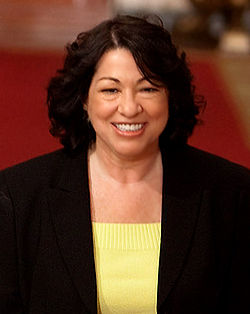 A group of 10 Democrats from industrial and coal-dependent states sent a letter to President Obama on Thursday informing him that they will not support a climate and energy bill that puts American businesses on an uneven playing field.
A group of 10 Democrats from industrial and coal-dependent states sent a letter to President Obama on Thursday informing him that they will not support a climate and energy bill that puts American businesses on an uneven playing field.
“Climate change is a reality and the world cannot afford inaction. However, we must not engage in a self-defeating effort that displaces greenhouse gas emissions rather than reducing them and displaces U.S. jobs rather than bolstering them,” they wrote.
Sens. Sherrod Brown (Ohio), Debbie Stabenow (Mich.), Carl Levin (Mich.), Robert Casey (Penn.), Arlen Specter (Penn.), Robert Byrd (W.Va.), Jay Rockefeller (W.Va.), Evan Bayh (Ind.), Russell Feingold (Wis.), and Al Franken (Minn.) signed the letter. All 10 represent states that are coal-dependent and have a significant manufacturing base. Each is seen as a potential swing vote on the climate bill, and three (Bayh, Feingold, and Specter) are up for reelection in 2010 (though only Specter is seen as facing a tough political fight).
Five of the signers — Bayh, Brown, Levin, Rockefeller, and Stabenow — signed a letter last year saying they would have voted against the Lieberman-Warner climate bill had it been brought to a final vote at the time, and many of the 10 hail from states represented by some of the 44 House Democrats who voted against the Waxman-Markey bill in June.
Placing limits on domestic emissions will increase the costs of energy-intensive industries like cement, steel, paper, and aluminum, the senators write, and will push jobs in those industries to countries that do not have limits on emissions. They ask the administration to work with Congress to “ensure that climate change legislation does not produce an international race to the bottom” as more jobs are exported to countries with lower costs.
A climate bill should “include provisions to maintain a level playing field for American manufacturing,” the senators write. “[I]t is essential that any clean energy legislation not only address the crisis of climate change, but include strong provisions to ensure the strength and viability of domestic manufacturing.”
The authors call for transition assistance in the form of energy cost rebates for energy-intensive and trade-exposed industries, and policies and funding to support the research and development of new energy technologies. They also urge the Obama administration to negotiate a strong international agreement for emissions reductions in Copenhagen in December, including programs that “measure, monitor, verify, and hold countries accountable for emissions reductions.”
The biggest flashpoint issue raised in the letter deals with trade. They authors encourage the president to support the inclusion of a border-adjustment policy in the climate bill, which would be a tariff on goods imported into the U.S. from countries that don’t have binding emissions targets. Such a measure will be “critical to ensuring that climate change legislation will be trade neutral and environmentally effective,” they write.
But this is likely to be an issue for the White House, which has already balked at some of the trade-protection elements included in the House bill. The Waxman-Markey proposal would give the president the power to attach special levies on goods from countries that are not abiding by an international agreement. Shortly after passage, Obama criticized the bill’s border adjustment measures as being too “protectionist.” “I think there may be other ways of doing it than with a tariff approach,” said the president.
The letter was sent just before senators return to their districts for the five-week August recess. They are leaving with two of the president’s major policy initiatives — climate and health care — unresolved, to be taken up again when Congress resumes.
Sen. Barbara Boxer (D-Calif.), chair of the Environment and Public Works Committee, told reporters on Thursday that she intends to have legislation ready to introduce after the Senate reconvenes on Sept. 7, with hearings and briefings to follow. Senate Majority Leader Harry Reid (D-Nev.) has asked the various committees with jurisdiction over climate and energy policy to complete their work on a bill by Sept. 28. Boxer said she remains confident that her panel can approve a bill by that deadline.
Another major factor will be whether other committees choose to write components of the bill. Finance Committee Chair Max Baucus (D-Mont.) has said he would like his committee to author the portion dealing with allowance distribution, and his committee held its first hearing on the subject earlier this week. Other committees, like Agriculture, may also want to craft relevant portions of the bill. Boxer said that her committee’s bill would be comprehensive and that she will leave it to Reid to incorporate the work of other committees.
“I welcome all the committees to write whatever parts of the bill they feel they have jurisdiction over,” said Boxer. “I am happy to see all the committees getting involved. And then Harry Reid is going to take all the bills.”
Thursday was the last day of hearings before the congressional break, but there will surely be updates on how senators are positioning themselves in the weeks to come. Watch our series on swing-vote senators to find out more.
Below is the text of the letter sent by the 10 senators today:
President Barack Obama
The White House
1600 Pennsylvania Avenue, N.W.
Washington, DC 20500Dear Mr. President:
We write to express our strong support for the inclusion of a package of initiatives, including a border adjustment mechanism, to ensure the viability and effectiveness of any climate change policy crafted by Congress.As Congress considers energy and climate legislation, it is important that such a bill include provisions to maintain a level playing field for American manufacturing. Manufacturing accounts for more than 10 percent of our economy and nearly three-fourths of the nation’s industrial research and development. Manufacturing jobs also pay 20 percent more on average than service jobs and have a strong multiplier effect. Therefore it is essential that any clean energy legislation not only address the crisis of climate change, but include strong provisions to ensure the strength and viability of domestic manufacturing. Further, any climate change legislation must prevent the export of jobs and related greenhouse gas emissions to countries that fail to take actions to combat the threat of global warming comparable to those taken by the United States.
Measures to ensure that U.S. manufacturers do not bear the brunt of our climate change policy could include: short-term transition assistance in the form of rebates provided to energy-intensive and trade-exposed industries; negotiating objectives requiring any international agreement to address manufacturing competitiveness; effective means to measure, monitor, verify, and hold countries accountable for emissions reductions; and policies that promote investments in energy efficient and clean technology manufacturing and help the sector retool for the clean energy economy.
In addition, a longer-term border adjustment mechanism is a vital part of this package to prevent the relocation of carbon emissions and industries if other major carbon emitting countries fail to commit to an international agreement requiring commensurate action on climate change. We believe that a border adjustment mechanism is critical to ensuring that climate change legislation will be trade neutral and environmentally effective.
As you know, production of many energy-intensive goods, such as iron ore, cement, and glass, occurs under vastly differing conditions. For example, steel produced in China results in roughly three times as much carbon being emitted into the atmosphere as steel produced here in the United States. In the absence of an adequate international agreement, a border measure could help to prevent countries from responding to climate change less rigorously than the United States and undercutting the effectiveness of our climate policy by shifting, rather than reducing, greenhouse gas emissions.
The border adjustment mechanism could also assist efforts to reach a global climate change agreement at the upcoming United Nations Framework Convention on Climate Change (UNFCCC) summit in Copenhagen. By eliminating the competitive benefit of not acting to address this global problem, it should spur countries to reach a comprehensive accord. The border adjustment can be avoided in those energy intensive industries for nations that reach a binding, equitable, and verifiable international agreement or international sectoral agreements. Recently, the World Trade Organization (WTO) and the United Nations Environment Program issued a report confirming that WTO rules do not override environmental measures. This reflects the reality that the international community will look at border adjustment measures in the context of international global warming goals. Failure to do so would further elevate doubts about the legitimacy of our international trading system. Climate change is a reality and the world cannot afford inaction. However, we must not engage in a self-defeating effort that displaces greenhouse gas emissions rather than reducing them and displaces U.S. jobs rather than bolstering them. Domestic manufacturers and the workers they employ can and must play a vital role in our nation’s clean energy future. It is essential that climate change legislation include a border mechanism, sufficient allowances to energy intensive industries and other effective measures that encourage international agreements and maintain a level playing field for American manufacturers. We would find it extremely difficult to support a final measure that does not effectively deal with these important issues.
We look forward to working with you and your Administration to ensure that climate change legislation does not produce an international race to the bottom.
Sincerely,
Sherrod Brown
United States SenatorDebbie Stabenow
United States SenatorRussell D. Feingold
United States SenatorCarl Levin
United States SenatorEvan Bayh
United States SenatorRobert P. Casey
United States SenatorRobert C. Byrd
United States SenatorArlen Specter
United States SenatorJohn D. Rockefeller IV
United States SenatorAl Franken
United States SenatorCC: Senator Harry Reid, Majority Leader; Senator Barbara Boxer, Chairman, Senate Committee on Environment and Public Works; Senator Max Baucus, Chairman, Senate Committee on Finance




